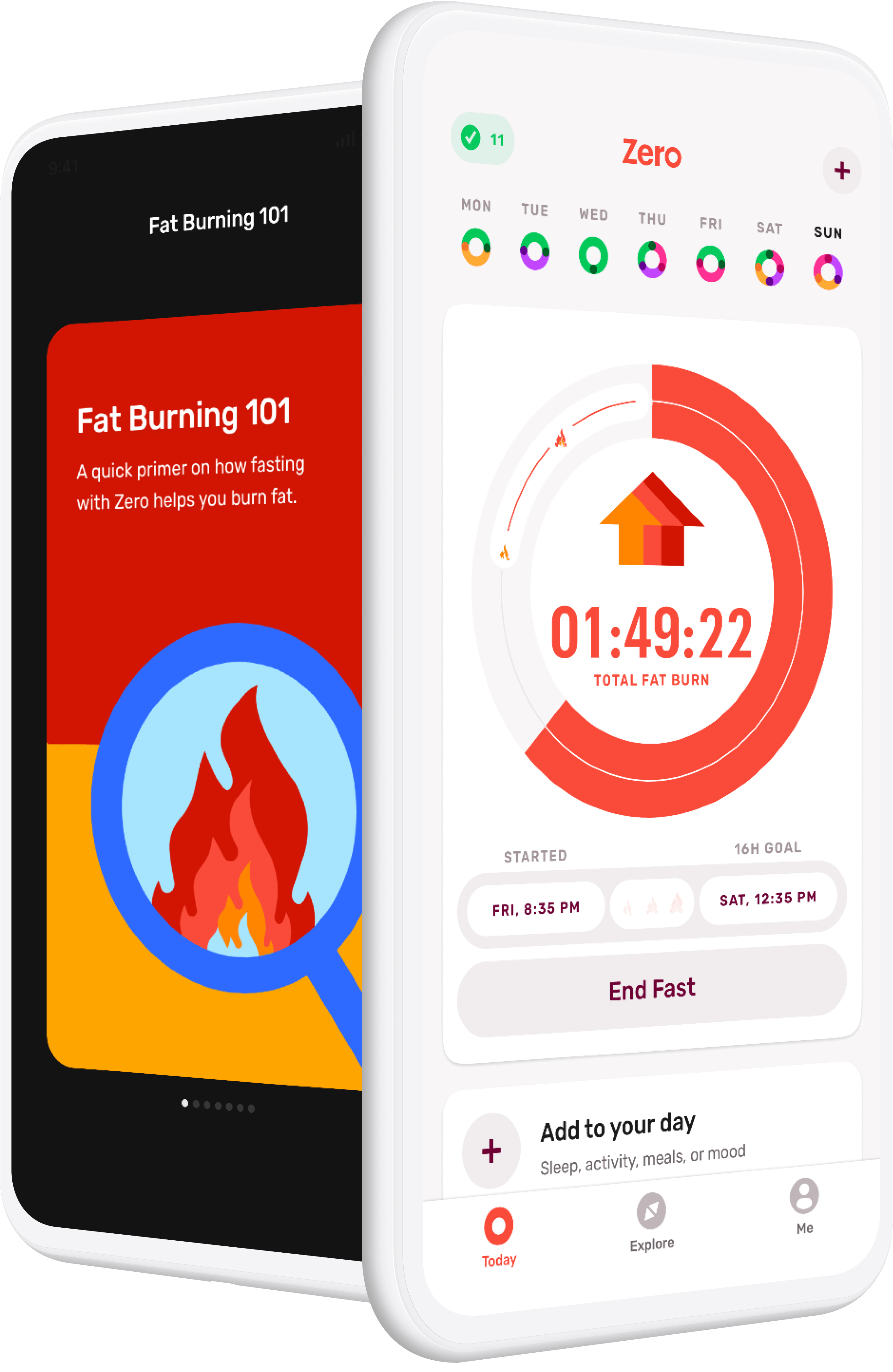“Zero has had a tremendous impact on my energy levels. I have energy in my late 30s that I didn’t have in my 20s. I don’t think I was in this good of shape when I was playing soccer in high school!”
Read Carlos' Story


Zero is your partner in the journey towards weight loss and health gain. Replace the dieting seesaw with intermittent fasting and other healthy habits that build momentum towards better, lasting health.
As seen on

Replace the dieting seesaw with intermittent fasting and other healthy habits that you can sustain — for life.
Create simple, interlocking habits to leverage the transformative power of these Four Pillars of Health.
Sync your favorite health apps to get an immediate picture of your health journey. Link habits, get inspired, and stay motivated.
Receive personalized guidance based on your unique data to accelerate towards your weight loss and heath gain goals.
This is a great app. Very user-friendly, and I love that it checks in on you to see how you are doing, keeping you accountable. It’s two thumbs up for me!
I have really enjoyed the Zero app! It’s nice to see my accomplishments and progress. I enjoy the articles, too! Thanks for making this app accessible and so easy to use!
This app has been essential in my weight loss journey. Reading about the different phases my body goes through has also helped keep me motivated.
Very well designed, with great tools for motivation (like streak tracking, badges, etc.) and education (like numerous articles). The fasting Timer and notifications are great.
Best investment which helped me get my weight down. Live a healthy life and fast to improve my focus, energy, and mood. I eat a lot healthier and have lost 50 pounds.
Simple and easy to use. Don’t have to get lost on metrics. It’s helped me control late-night binging. Love the fact that you can end your fast from the watch.
I cannot thank the Zero team enough for creating this well-polished app. Zero, along with a healthy ketogenic diet, helped me lose over 100 lbs — and still going strong!
I love this app. It is really worth every penny. I am moving forward on my health goals, and I am more informed now than ever about fasting and getting results. I love it!
Best investment which helped me get my weight down. Live a healthy life and fast to improve my focus, energy, and mood. I eat a lot healthier and have lost 50 pounds.
I’ve never felt more focused, more energetic, more calm, and more patient with people. All it takes is making the decision to do and feel your best, hit that button, and get Zero.
Zero is the best app that I have on my phone. It’s helped me so much with my weight and fitness goals — truly a life-changing app. Thank you so much!
I love Zero. Deceptively simple to use, with complex science solidly backing it. This has become a lifestyle choice for both my wife and I — and we are loving the health benefits from it already.
Zero is based on dozens of peer-reviewed studies and developed with our Scientific Advisory Board.
Dr. Naomi Parrella Chief Medical Officer of Zero and the Chief of Lifestyle Medicine at Rush University. She is an accomplished obesity-medicine physician and a sought-after speaker on the topics of metabolic health and lifestyle change. She leads seven clinics in the Chicagoland area and has helped over 10,000 patients move towards their health goals.
Nicole Grant, RD. Certified Nutrition Support Specialist
Rich LaFountain, PhD. Kinesiology Researcher and Science Writer
Katya Meyers, RD. Certified Nutrition Support Specialist
Kristi Storoschuk, BSc. Muscle Physiology and Metabolic Health Researcher
David B. Allison, PhD. Biostatistician and Psychologist, Obesity Researcher, Dean of The Indiana University School of Public Health-Bloomington, one of the top 10 scientists in the world awarded the most NIH grant funding
Eric Ravussin, PhD. Professor in Human Psychology, Director of the Nutritional Obesity Research Center at Pennington Biomedical Research Center, Douglas L. Gordon Chair in Diabetes and Metabolism
Steven N. Austad, PhD. Professor and Chair of the Department of Biology at the University of Alabama
Join millions of other Members on the journey to live better, longer.
Take the Quiz